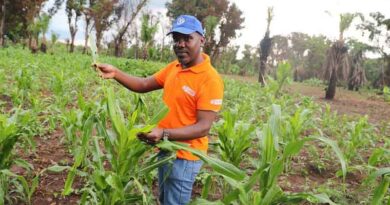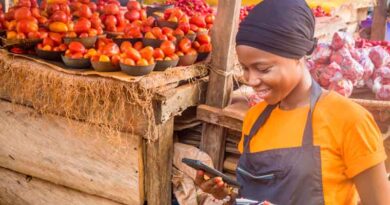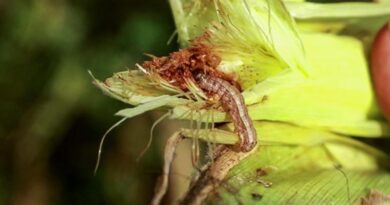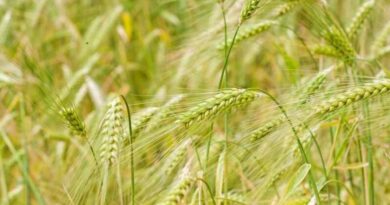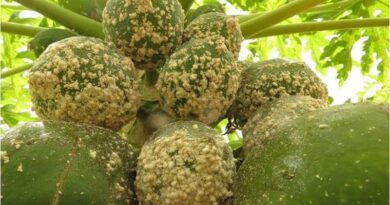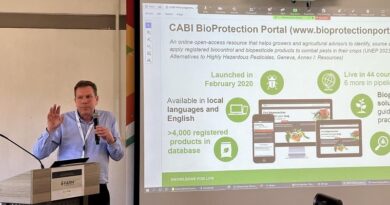How does better food processing support food security?
27 June 2023, Ghana: How can better food systems protect food security? We talk to CABI’s food safety scientist, Sydney Phiri, in a Q&A
Scientist Sydney Phiri joined CABI in 2022 to focus on sanitary and phytosanitary (SPS) issues and food safety. He has a well-established career and has worked on a range of food safety and hygiene issues, including food product development, fermentation, and processing. Amidst climate change, he’s motivated to advance technology for food security. And he enjoys food safety innovation and looking for ways to add value to crops and food products. Here, he answers questions about food processing, looking at the challenges and solutions that lie ahead.
In your opinion, what are the biggest challenges facing food processing today?
In developing countries in particular, equipment to efficiently process food and store it when it’s most needed can be a big challenge. This hurdle leads to people having limited access to nutrients and food diversification. Food diversification is essential because it enables a diverse diet, which is vital for good health and well-being.
How and where do we lose or waste food during processing, and what can we do to stop it?
Food waste is a serious problem. Inadequate machinery cannot exhaustively process all the raw materials from food production or make use of waste material into by-products. Storage facilities may be limited to storing food just for household consumption. And excess food is, therefore, vulnerable to loss by insects, termites, rodents, and thieves. But there are solutions. Technologies such as hermetic bags have been ideal for controlling insect pests. And metal and plastic silos protect crops from insects, termites, and rodents.
How can we best address post-harvest losses?
We can best address these losses by developing appropriate technologies for specific food crops. These technologies can reduce food loss but also add value to the produce. For example, raised platform drying pans can promote the effective drying of groundnuts. This technology reduces the accumulation of moisture that can increase aflatoxins on groundnuts. And metal silos and hermetic bags reduce insect attacks with minimal or zero use of chemicals. Solar drying of fresh fruits and vegetables when natural drying processes are inadequate can also help. Solar dryers are devices that use solar energy to dry substances, especially fresh fruits and vegetables.
What are the consequences of food waste, not only in terms of farmers’ incomes but also in relation to the environment?
Most food is seasonal. When seasonal food cannot be eaten or preserved, we end up with food waste. This is why post-harvest processes as well as reliable markets and value chains are so important. Food left to rot can cause harmful greenhouse gas emissions. It can even cause pollution, contaminating the environment and water sources. If food is not properly conserved for consumption later in the year, food insecurity can follow.
How do climates and seasons affect food waste, and how can the right processing skills help farmers stretch out a good harvest and rely on it for longer?
Good weather can lead to a glut of food, but without good post-harvest processing techniques (drying, canning, value addition), food waste will follow, which leads to food insecurity. On the other hand, bad weather (droughts, floods, and storms, for example) may lead to inadequate crop yield for processing and farmers may suffer from food insecurity. The right processing techniques can ensure that value is added to processed food. It can also increase shelf-life or enhance storability. Food processing techniques are instrumental in stretching out food in the event of bad weather or food shortages off-season.
What do farmers and growers need to know to help them make better linkages with markets?
Smallholder farmers in particular need to really know their crop. This includes how perishable it is, its target market, when it gains high market value, and who the processors of their produce are. This can add value and increase shelf life, creating linkages and marketing their product with all that knowledge can be a lot easier.
Also Read: Small dairy farmers: The backbone of Indian dairy
(For Latest Agriculture News & Updates, follow Krishak Jagat on Google News)





